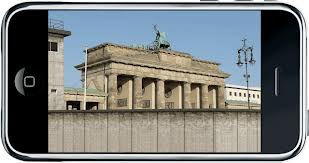I can now look at the Brandenburg Gate in Germany and with my phone scan around to see what the Berlin Wall would actually have looked like before it came down. Just like augmented reality is a part of our lives, the traveler of tomorrow, expects a lot from his agent. Back in the old days you could walk across the street and talk to your travel agent, and plan your vacation. Your travel agent would know you, your likes and dislikes, your preferences and design that perfect vacation for you and your family. Then came in the Online Travel Agents who would give you the same vacation for less. Though the online travel agencies are good at giving discounts, you really need to know what you are buying. So most people do SOBO (Search offline buy online).
 With traditional travel agents going out of fashion, the Online Travel Agencies (OTA’s) will have to do a much better job of giving the same level of personalized services. The traveler of tomorrow wants the online travel sites to hear, study and remember the preferences and then suggest the right deals. For example if I always book a five star hotel, why should the site show me hotels that are sorted based on price? . Technology companies will have to help build this layer of abstraction and personalization to help OTA’s become better travel agents.
With traditional travel agents going out of fashion, the Online Travel Agencies (OTA’s) will have to do a much better job of giving the same level of personalized services. The traveler of tomorrow wants the online travel sites to hear, study and remember the preferences and then suggest the right deals. For example if I always book a five star hotel, why should the site show me hotels that are sorted based on price? . Technology companies will have to help build this layer of abstraction and personalization to help OTA’s become better travel agents.
Wouldn’t it be nice if the OTA would remember the preferences on amenities, star rating, guest rating and deliver the results accordingly? Or if they would check my social to understand and study me better? Most people do not immediately sign up on a travel site unless they are really sure and trust the OTA. To help combat this challenge, a mobile app would be the best tool. The app would store all the moves of the user, compare past preferences and give intelligent suggestions. OTA’s could include communication based innovations like the text messages, voice messages, emails and wakeup calls to better engage with the customer and get to understand and him better.
Because of the rapidly changing setting of online information sources, there are no easy answers regarding guests’ preferences and use of technology. We know that many commonly believed differences due to gender, demographics, or hotel category are no longer significant for many information search categories. Beyond this we know that technology use is still a work in progress and any conclusions written today will seem old-fashioned in the near future.
One thing has been noticed is that travelers are inclined to certain types of sites at various stages of their purchase process. I will dwell deeper into this topic in my next blog.


